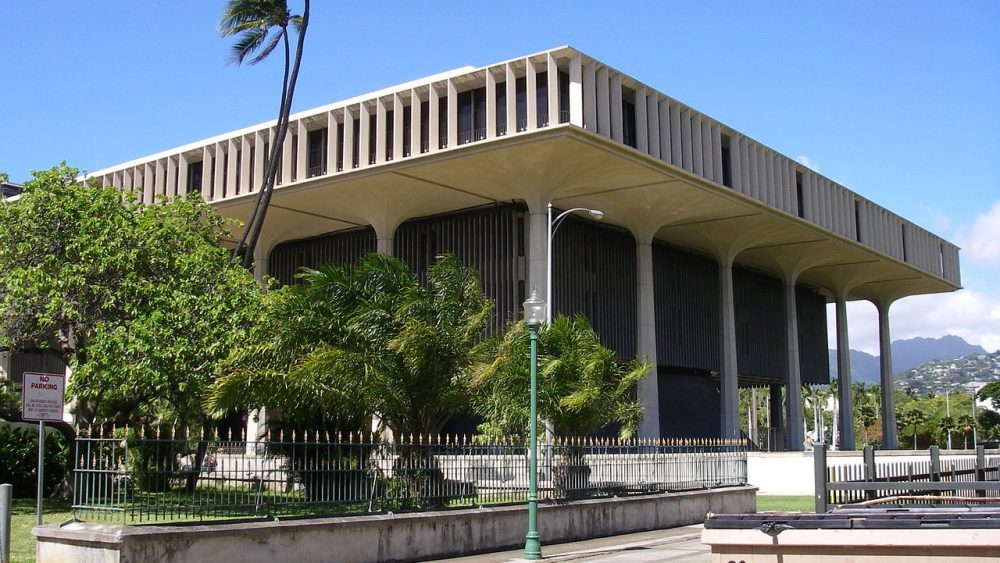
The Hawaii Ethics Commission approved a package of proposals on June 18. These proposals amend and adopt portions of the Hawaii Administrative Rules related to lobbying and gifts. The amendments in chapters one through six address the Commission’s operations and […]
The Hawaii Ethics Commission approved a package of proposals on June 18. These proposals amend and adopt portions of the Hawaii Administrative Rules related to lobbying and gifts.
The amendments in chapters one through six address the Commission’s operations and procedures. Additionally, chapters seven through 10 now include sections on “Lobbying” and “Gifts and Fair Treatment”.
The proposed rules do not purport to amend any statutes. Rather, they are designed to interpret and execute the statutes enacted by the Legislature.
Section 21-10-5
Section 21-10-5, statement of contributions and expenditures, addresses the statutory requirement that statements of contributions and expenditures must be filed by up to three different entities. This could be the client, the employing organization, and the lobbyist. Or, in the case of lobbyists employed in-house by the client, the client or employing organization and the lobbyist.
This rule creates a single, client-based report rather than requiring separate reports from the client, the employing organization, and the lobbyist. This single, client-based reporting method avoids double or sometimes triple reporting. Additionally, it eliminates the practice, when clients or employing organizations cover expenditures, of having lobbyists submit reports listing “zero” expenditures.
Section 21-10-1
Section 21-10-1 contains definitions of “direct lobbying” and “grassroots lobbying” to demonstrate that lobbying can be both direct and indirect, consistent with the definition of lobbying in Section 97-1 of the Hawaii Revised Statutes. Under Rule 21-10-1, direct lobbying is defined as any oral or written communication with a legislator, an employee, intern, or volunteer of the legislature or an agency that would appear to a reasonable person to be an attempt to influence legislation or rule-making.
Additionally, grassroots lobbying is defined as any oral or written communication directed at any member of the public that expresses an opinion about existing or potential legislation, administrative rule, or ballot issue and includes an explicit or implied call to action.
Section 21-7-6
Section 21-7-6, valuation of gifts, defines the value of a gift as the cost that a member of the public would reasonably expect to incur to purchase it. For example, If the face value of a ticket to an event is $100, but the event is sold out and tickets on the secondary market are $500 at the time the ticket is offered as a gift, the value of the ticket is $500.
The rules must now be approved by the Department of the Attorney General, and then by the governor. Once approved by both offices, they will be posted with the Office of the Lieutenant Governor for 10 days before becoming effective.
March 18, 2020 •
New Jersey Federal Court Enjoins Donor Disclosure Law
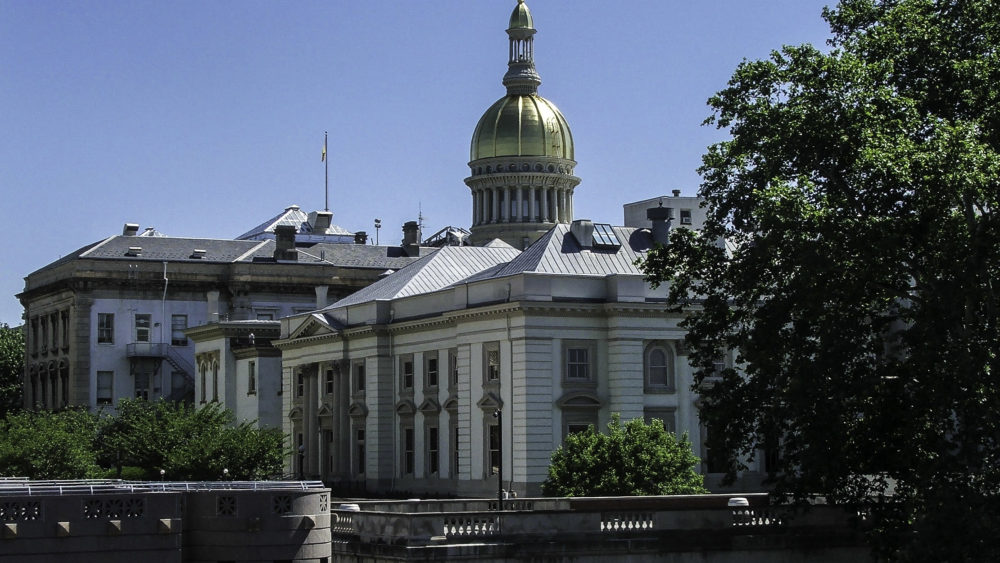
New Jersey Capitol Building
On March 11, the United States District Court for the District of New Jersey permanently enjoined the state from enforcing Senate Bill 150. The bill was signed by the governor last June and was scheduled to take effect on October […]
On March 11, the United States District Court for the District of New Jersey permanently enjoined the state from enforcing Senate Bill 150.
The bill was signed by the governor last June and was scheduled to take effect on October 15, 2019.
The dark money bill required independent expenditure committees to report contributions in excess of $10,000.
Additionally, the bill required reporting of expenditures in excess of $3,000 to the Election Law Enforcement Commission.
The order does not prevent the Legislature to revisit the issue with new legislation.
September 10, 2019 •
FPPC Proposes Sponsored Committee Amendments
On October 18, the Fair Political Practices Commission (FPPC) will consider proposed amendments adding language to help determine when a committee reaches the 80% threshold for qualification as a sponsored committee. The threshold will be determined by all contributions received […]
On October 18, the Fair Political Practices Commission (FPPC) will consider proposed amendments adding language to help determine when a committee reaches the 80% threshold for qualification as a sponsored committee.
The threshold will be determined by all contributions received by a committee in the preceding 24 months.
A committee will also be required to determine if it qualifies as a sponsored committee, or if a sponsor changed, at the time of filing each campaign statement.
The proposed amendments would also provide additional guidance regarding the appropriate terms which should be used to describe the industry or group affiliation of multiple sponsors.
The FPPC is accepting written comments on the proposals until October 16, 2019.
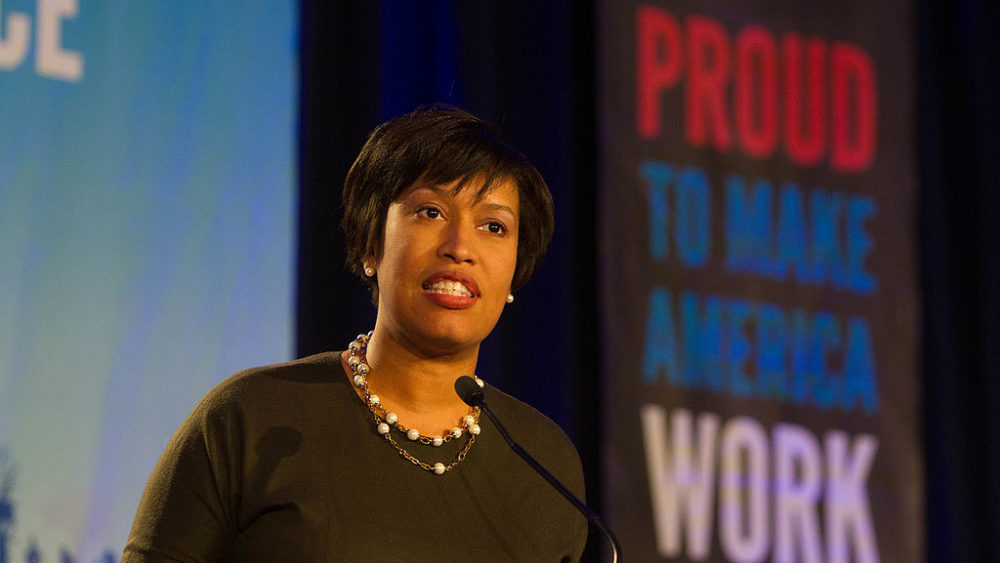
Washington D.C. Mayor Muriel Bowser - by AFGE
Mayor Muriel Bowser signed the Fair Elections Emergency Amendment Act of 2019 on May 22. The act amends the definition of a qualified small-dollar contribution to set a minimum value of cash or in-kind contributions at $5. The act became […]
Mayor Muriel Bowser signed the Fair Elections Emergency Amendment Act of 2019 on May 22.
The act amends the definition of a qualified small-dollar contribution to set a minimum value of cash or in-kind contributions at $5.
The act became effective following the approval by Mayor Bowser and will remain in effect until August 20.
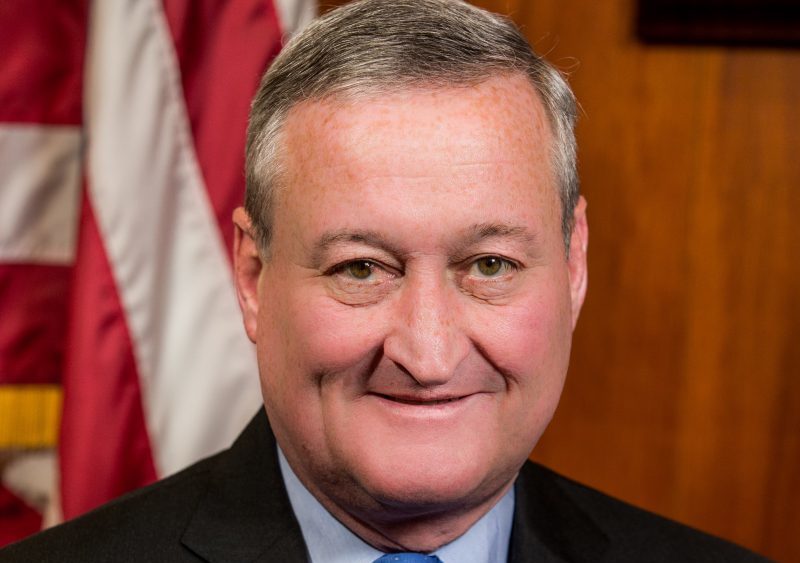
Philadelphia Mayor Jim Kenney
On May 1, Mayor Jim Kenney signed Ordinance No. 190083 amending the city’s provisions regarding campaign contributions, transition and inauguration committees, and campaign finance disclosures. Ordinance No. 190083, increased contribution limits for persons other than individuals from $11,900 to $12,000 […]
On May 1, Mayor Jim Kenney signed Ordinance No. 190083 amending the city’s provisions regarding campaign contributions, transition and inauguration committees, and campaign finance disclosures.
Ordinance No. 190083, increased contribution limits for persons other than individuals from $11,900 to $12,000 per calendar year.
Candidates may now establish a separate committee to raise money for transition or inauguration into office.
Additionally, a candidate may accept contributions to the transition or inauguration committee in addition to the contributions for their candidate committee.
The ordinance also requires enhanced disclosure of expenditures for publicly-distributed electioneering communications of $5,000 or more based on the date of the expenditure or date of its dissemination.
The provisions of the ordinance are effective immediately.
February 11, 2019 •
NYCU Video Digest – February 11, 2019
Happy Monday! Four stories from last week about new lobbying laws, campaign finance limits and gift laws you don’t want to miss!
Happy Monday! Four stories from last week about new lobbying laws, campaign finance limits and gift laws you don’t want to miss!
December 7, 2018 •
News You Can Use Digest – December 6, 2018
National: Republicans in Wisconsin, Michigan Push to Curb Power of Newly-Elected Democrats Washington Post – Mark Berman, Emily Wax-Thibodeaux, and Dan Simmons | Published: 12/5/2018 Following losses in statewide elections, Republicans in Wisconsin and Michigan have responded with pushes to limit the power […]
National:
Republicans in Wisconsin, Michigan Push to Curb Power of Newly-Elected Democrats
Washington Post – Mark Berman, Emily Wax-Thibodeaux, and Dan Simmons | Published: 12/5/2018
Following losses in statewide elections, Republicans in Wisconsin and Michigan have responded with pushes to limit the power of Democrats who won those offices, as advocacy groups threaten to block their efforts with legal action. Wisconsin Republicans passed bills that effectively kneecap the state’s incoming Democratic governor and attorney general with measures that limit or eliminate their abilities to act on aspects of gun control, a lawsuit on the Affordable Care Act, and various other state matters. Republican lawmakers in Michigan are similarly attempting to shift authority from the Democrats recently elected as governor, attorney general, and secretary of state, the first time the party will hold all three positions in nearly three decades.
Federal:
Prosecutors Ramp Up Foreign Lobbying Probe In New York
TPM – Eric Tucker, Desmond Butler, and Chad Day (Associated Press) | Published: 12/5/2018
Spinning off from the special counsel’s Russia probe, prosecutors are ramping up their investigation into foreign lobbying by two major Washington, D.C. firms that did work for former Trump campaign chairperson Paul Manafort, according to people familiar with the matter. The investigation had been quiet for months since special counsel Robert Mueller referred it to authorities in Manhattan because it fell outside his mandate of determining whether the Trump campaign coordinated with Russia. But in a flurry of new activity, Justice Department prosecutors in the last several weeks have begun interviewing witnesses and contacting lawyers to schedule additional questioning related to the Podesta Group and Mercury Public Affairs.
Saudi-Funded Lobbyist Paid for 500 Rooms at Trump’s Hotel After 2016 Election
MSN – David fahrenthold and Jonathan O’Connell (Washington Post) | Published: 12/5/2018
Saudi lobbyists moved some business to President Trump’s hotel in Washington, D.C., last year following the 2016 election, paying for an estimated 500 nights’ stay over just three months at the Trump International Hotel. Until December 2016, the lobbyists were booking at hotels in Northern Virginia. The lobbyists, backed by the Saudi Arabian government, spent around $270,000 at the Trump hotel in total, housing dozens of U.S. military veterans brought to the district to lobby Congress against a recently-passed law allowing victims of the September 11 terrorist attacks to sue other governments. The 500 nights in Trump’s hotel came at a discounted rate, and organizers claim that is the reason they moved their business there. Some of the veterans said they were not aware they were lobbying on behalf of Saudi Arabia.
From the States and Municipalities:
Arizona – Ruling Restores Expanded Oversight by Clean Elections Commission Over Campaign Finances
Arizona Daily Star – Howard Fischer (Capitol News Services) | Published: 12/6/2018
Maricopa County Superior Court Judge David Palmer ruled that major parts of a rewrite of Arizona’s campaign finance laws violate the state constitution. The judge said parts of the law illegally strip power from the Citizens Clean Elections Commission. The power to investigate campaign finance violations and act as filing officer for candidates was handed to the secretary of state under the law. The 2016 law created large exemptions in what counts as a contribution, including allowing political parties to spend unlimited sums backing a candidate. It also allowed unlimited spending on legal fees and other types of support for candidates and political committees without being counted toward contribution limits. Palmer ruled all those provisions violate the Voter Protection Act.
California – L.A. Councilman’s Wife Was a Paid Fundraiser. Ex-Aides Say He Assigned Them to Help
Los Angeles Times – Adam Elmahrek, David Zahniser, and Emily Alpert-Reyes | Published: 11/30/2018
Los Angeles City Council member Jose Huizar personally asked companies that do business at City Hall to donate to a private school where his wife was working as a professional fundraiser and also assigned his staff to help with the effort. Huizar instructed staffers to work on a yearly fundraiser for Bishop Mora Salesian High School, and the assignment was considered part of their job duties. Huizar also sent an email to aides in 2013 identifying lobbyists, city contractors, and others whom he had contacted about making a donation. In the email, Huizar said two of his staff members were assisting in the fundraising effort. Two donors who gave to Salesian in 2015 said they were asked to do so by Huizar staffers.
District of Columbia – D.C. Council Approves Sweeping Changes to Campaign Finance, Bans ‘Pay to Play’
Washington Post – Peter Jamison | Published: 12/4/2018
The District of Columbia Council passed legislation that addresses the city’s “pay-to-play” culture. The bill would ban campaign donations from firms and their top executives if they hold or are seeking government contracts worth at least $250,000. It would also give new authority to the city’s Office of Campaign Finance and require increased disclosures from independent expenditure committees. Amendments to the bill allow contractors to contribute to their own campaigns if they run for office and extend the deadline for closing campaign committees to 12 months after an election. Mayor Muriel Bowser could sign or veto the legislation or let it become law without signing it. She has not taken a position on restricting campaign donations from government contractors.
Hawaii – City Ethics Commission Is Investigating Far Fewer Cases Than 2 Years Ago
Honolulu Civil Beat – Natanya Friedheim | Published: 12/6/2018
The Honolulu Ethics Commission has kept a low profile since the tumultuous departure of its former director, Chuck Totto, more than two years ago. Totto’s replacement, Jan Yamane, has shifted the commission’s focus from investigating misconduct to training city employees and encouraging good behavior. “It doesn’t mean enforcement isn’t going to happen, but we would like to be more proactive,” Yamane said. In the years leading up to Totto’s departure, the commission saw a dwindling number of requests for advice, from an average of 342 per year from fiscal years 2012 to 2016 to just 182 requests in the 12 months following Totto’s exit. For some, the commission is now too quiet.
Illinois – Chicago Architects Don’t Just Draw – They Shower Aldermen with Campaign Cash
Chicago Tribune – Blair Kamin and Todd Lighty | Published: 12/6/2018
Chicago architects have long been viewed as more high-minded than developers, who are seen as plying the city’s aldermen with campaign money to get their projects off the ground. But that image of political purity bears little relation to reality. A virtual who’s who of Chicago architects has given tens of thousands of dollars to city council members who hold near-total power to determine whether their projects get built. Architects even have hosted fundraisers for aldermen. In some cases, donations are made while a project’s future hangs in the balance. In others, aldermen reported receiving the contributions not long after the proposals were approved. Watchdogs worry the contributions give architects an advantage over ordinary residents who oppose projects but may not have their alderman’s attention.
Massachusetts – Massachusetts Campaign Finance Law on Union Donations Appealed to U.S. Supreme Court
MassLive.com – Shira Schoenberg | Published: 12/5/2018
The Massachusetts Fiscal Alliance, after losing a challenge to the state’s ban on corporate political donations in the Supreme Judicial Court, is seeking to challenge the law before the U.S. Supreme Court. Massachusetts law prohibits corporations from contributing directly to candidates or establishing PACs but allows them to make unlimited independent expenditures, with certain disclosure requirements. The plaintiffs in the state case argued the ban violates their First Amendment rights and unfairly applies to corporations but not entities like unions and nonprofits. The Supreme Judicial Court ruled the ban on corporate donations does not violate free speech rights and can help prevent actual and perceived corruption.
Minnesota – You Know You Want to Read This Sexy Story about Legislative Process Reform
Minnesota Post – Peter Callaghan | Published: 11/29/2018
There might have been no better illustration of how long the lack of transparency at the Minnesota Legislature has been a problem than the testimony provided by a longtime lobbyist and former legislative staffer at a recent hearing on legislative process reform. Phil Griffin dug up and offered testimony on the shortcomings of the legislative process he had delivered before – in 2008. The concerns were much the same back then, Griffin said, and they remain today: The Legislature is hard to follow, even for those who get paid to do so. Too much work is done out of public view, too much is left for the closing days, and too much business is left to be addressed in massive omnibus bills that include dozens and sometimes hundreds of bills. Others echoed those complaints.
Missouri – Missouri Lawmakers Resign Ahead of New Lobbyist Limits
St. Louis Post-Dispatch – David Lieb (Associated Press) | Published: 12/4/2018
Three Missouri lawmakers have resigned just ahead of the date a new constitutional amendment takes effect requiring legislators to wait two years before they can become lobbyists. State Sen. Jake Hummel confirmed he resigned in order to preserve his right to register as a lobbyist sooner rather than later. Current law requires legislators to wait six months after the end of their elected term before they can start lobbying. The new amendment requires them to wait two years after the end of the session in which they last served, but it applies only to those serving on or after the measure’s effective date.
North Carolina – North Carolina Election-Fraud Investigation Centers on Operative with Criminal History Who Worked for GOP Congressional Candidate
Chicago Tribune – Amy Gardner and Kirk Ross (Washington Post) | Published: 12/3/2018
Political operative Leslie McCrae Dowless is at the center of a fraud investigation that has delayed the certification of Republican Mark Harris’s narrow victory in the Ninth Congressional District race in North Carolina and could prompt officials to call for a new election. The possibility that November’s vote will be tossed out has prompted an outbreak of partisan accusations. The case is politically fraught for the GOP, who have pushed for voter-identification laws and other restrictions while warning without evidence about the threat of rampant voter fraud. Now, amid Democratic calls for investigations of a different kind of election fraud, one that allegedly benefited the GOP, Republicans have stayed largely silent about the allegations, instead accusing the state elections board of trying to steal the race.
Pennsylvania – Bob Brady Aide Smukler Found Guilty on 9 of 11 Counts in Campaign Finance Case
Philadelphia Inquirer – Jeremy Roebuck and Andrew Seidman | Published: 12/3/2018
A federal jury found U.S. Rep. Bob Brady’s top political strategist, Ken Smuckler, guilty of nine of 11 counts of repeatedly flouting campaign finance laws. Smukler was convicted of coordinating multiple unlawful contributions and falsifying finance reports for candidates in back-to-back congressional races. One of those campaigns, Brady’s 2012 primary bid for re-election, ended with the abrupt withdrawal of his opponent after he was promised a $90,000 payoff, which jurors concluded Smukler helped to pay. The Justice Department now has won convictions and guilty pleas against four key players in the 2012 campaign – except, notably, Brady himself.
Texas – Some Republicans Want to Oust a Muslim Doctor from His GOP Leadership Role – Because He’s Muslim
San Jose Mercury News – Meagan Flynn (Washington Post) | Published: 12/5/2018
The first time Shahid Shafi ran for a seat on the city council in Southlake in 2011, advisers assured him a Muslim in post-September 11 America who spoke with an accent and emigrated from Pakistan would never win an election in Texas. He won the Southlake City Council seat on his second try, in 2014, has since served as a delegate to multiple Texas GOP conventions and, in July, was appointed vice chairperson of the Tarrant County Republican Party. But that is when his religion somehow became a problem again, in the eyes of some Republican colleagues.
West Virginia – He Is West Virginia’s Speaker of the House – and a Lawyer for Natural Gas Companies
ProPublica – Ken Ward Jr. and Kate Mishkin (Charleston Gazette-Mail) | Published: 12/4/2018
West Virginia Del. Roger Hanshaw is expected to be re-elected as House speaker when the legislative session convenes in January. In the position, Hanshaw wields significant control over which bills are called up for votes and which are sent to committees to effectively die. When he is not at the Capitol, Hanshaw makes his living as an attorney, and his clients have included natural gas companies and gas industry lobby groups. Under the state’s ethics laws, those overlapping interests are not enough to keep him from voting on matters affecting the industry. Hanshaw illustrates both the industry’s growing ties to lawmakers and how West Virginia ethics laws allow lawmakers to advocate for their own interests or those of their clients, and sometimes leave state residents in the dark about such potential conflicts.
December 5, 2018 •
D.C. Campaign Finance Bill Passes Second Vote
The D.C. Council unanimously approved a bill in a second full council vote that aims to restrict political contributions by government contractors doing business with the district. The bill also addresses improper coordination between campaigns, political action committees and independent […]
 The D.C. Council unanimously approved a bill in a second full council vote that aims to restrict political contributions by government contractors doing business with the district.
The D.C. Council unanimously approved a bill in a second full council vote that aims to restrict political contributions by government contractors doing business with the district.
The bill also addresses improper coordination between campaigns, political action committees and independent expenditure committees.
The pay-to-play component of the bill would ban campaign contributions by businesses seeking contracts of $250,000 or more.
Provided the mayor approves the legislation, the act of the council travels to Congress for a 30-day review. If approved and funded, the bill would take effect on October 1, 2019.
Pay-to-play provisions would take effect after the November 2020 general election.
Q. Can I use my company’s federal PAC to make contributions to candidates for state office? A. With the exception of Massachusetts, contributions from a federal PAC to non-federal state candidates are permissible. However, the challenging aspect of making these […]
 Q. Can I use my company’s federal PAC to make contributions to candidates for state office?
Q. Can I use my company’s federal PAC to make contributions to candidates for state office?
A. With the exception of Massachusetts, contributions from a federal PAC to non-federal state candidates are permissible. However, the challenging aspect of making these types of contributions is that every jurisdiction has different rules regarding how to register and report such contributions. To make this a little easier to digest, we have broken down the states into five categories. Please note: regardless of the registration and reporting process, in all jurisdictions the federal PAC is subject to the contribution limits according to the law of that jurisdiction…
We have not listed PAC rules for all the states, only examples of some states.
If you have a question on a state not listed here, please contact us directly
at 1-330-761-9960.
Click here to read ALL Ask the Experts articles in full
Please fill out the small form to gain access to all articles free! Thanks.
February 22, 2017 •
Appeals Court Upholds Provisions of Senate Bill 571
The U.S. Court of Appeals for the Sixth Circuit reversed a U.S District Court’s decision to issue a preliminary injunction against provisions of Senate Bill 571, which enables corporations to deduct PAC contributions from employees’ paychecks while prohibiting labor unions […]
 The U.S. Court of Appeals for the Sixth Circuit reversed a U.S District Court’s decision to issue a preliminary injunction against provisions of Senate Bill 571, which enables corporations to deduct PAC contributions from employees’ paychecks while prohibiting labor unions from doing the same.
The U.S. Court of Appeals for the Sixth Circuit reversed a U.S District Court’s decision to issue a preliminary injunction against provisions of Senate Bill 571, which enables corporations to deduct PAC contributions from employees’ paychecks while prohibiting labor unions from doing the same.
Ultimately, Sixth Circuit Judge Jeffrey Sutton relied on similar cases stating “absent a burden on a constitutionally cognizable right, the government may regulate what is at best a speech-facilitating mechanism.” Michigan State AFL-CIO v. Schuette, No. 16-2100, at *8 (6th Cir., Feb. 9, 2017).
February 20, 2017 •
Missouri Lawmakers Want Future Governors to Disclose Details of Inaugural Contributions
Missouri House Democrats have introduced a bill to require future governors to publicly disclose donations for gubernatorial inauguration activities. Lawmakers hope to eliminate the appearance of corruption by allowing Missourians to see how much money corporations and lobbyists donate to […]
 Missouri House Democrats have introduced a bill to require future governors to publicly disclose donations for gubernatorial inauguration activities.
Missouri House Democrats have introduced a bill to require future governors to publicly disclose donations for gubernatorial inauguration activities.
Lawmakers hope to eliminate the appearance of corruption by allowing Missourians to see how much money corporations and lobbyists donate to fund inaugural events.
Recently, Gov. Eric Greitens issued a list of benefactors who contributed to his inaugural celebration but refused to confirm how much was contributed by each donor and how much money was actually spent.
He formed a nonprofit to raise money for the inauguration and the contributions, therefore, were not subject to state campaign finance laws.
January 17, 2017 •
The Cost of the Inauguration
President-Elect Trump’s Inauguration is estimated to cost around $200 million. The official events, including the swearing-in ceremony, security, and the parade, will be paid for by the federal government. Security is the biggest expense, accounting for almost half of the […]
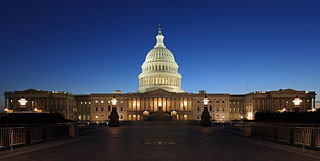 President-Elect Trump’s Inauguration is estimated to cost around $200 million. The official events, including the swearing-in ceremony, security, and the parade, will be paid for by the federal government.
President-Elect Trump’s Inauguration is estimated to cost around $200 million. The official events, including the swearing-in ceremony, security, and the parade, will be paid for by the federal government.
Security is the biggest expense, accounting for almost half of the budget. The inaugural ball and other festivities will be covered by the Presidential Inaugural Committee, which raises money through private donors. The committee has raised a record $100 million-plus, which is almost double the committee for President Obama raised in 2009.
Inaugural committees have few regulations, but each administration sets their own rules and limits on donations. President George W. Bush capped the amount each individual and corporation could donate. In 2009, Obama allowed individual gifts up to $50,000, but banned donations from lobbyists and corporations.
Trump did not place restrictions on donations from individuals, but his committee has refused donations from federal lobbyists and capped corporate contributions to $1 million.
November 17, 2016 •
Utah Special Session Adjourned
The Utah Legislature adjourned a one day special session sine die on November 16, 2017. Lawmakers unanimously passed a bill to fix a complicated gas tax distribution formula in order to evenly distribute revenue and reflect the legislative intent of […]
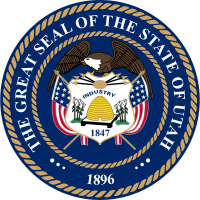 The Utah Legislature adjourned a one day special session sine die on November 16, 2017. Lawmakers unanimously passed a bill to fix a complicated gas tax distribution formula in order to evenly distribute revenue and reflect the legislative intent of the original bill passed last year.
The Utah Legislature adjourned a one day special session sine die on November 16, 2017. Lawmakers unanimously passed a bill to fix a complicated gas tax distribution formula in order to evenly distribute revenue and reflect the legislative intent of the original bill passed last year.
Lawmakers also passed a bill clarifying the definitions of solid waste and solid waste management facility, seeking approval from Gov. Gary Herbert who vetoed similar legislation earlier this year and requested changes.
Per Utah law, the ban on contributions during a special legislative session concludes at the time of adjournment.
August 3, 2016 •
Miami-Dade, FL Group Seeks to Reign in Money in County Elections
A political committee called An Accountable Miami-Dade is sponsoring a proposal to change campaign finance rules for county elections. The proposal would limit contributions to candidates to $250, rather than the state-set limit of $1,000, and county vendors and lobbyists […]
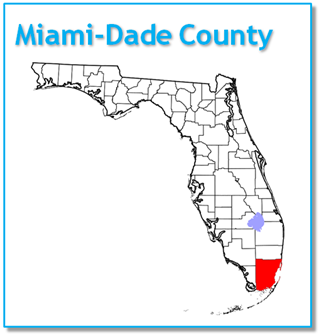 A political committee called An Accountable Miami-Dade is sponsoring a proposal to change campaign finance rules for county elections.
A political committee called An Accountable Miami-Dade is sponsoring a proposal to change campaign finance rules for county elections.
The proposal would limit contributions to candidates to $250, rather than the state-set limit of $1,000, and county vendors and lobbyists would be prohibited from making contributions. A system of matching contributions with public funds would also be created.
The group delivered 125,000 signed petitions to the county clerk of courts. If enough are verified, the county commission will decide whether to adopt the measure or to place it on the ballot. The proposed changes would not take effect until the next county election cycle.
State and Federal Communications, Inc. provides research and consulting services for government relations professionals on lobbying laws, procurement lobbying laws, political contribution laws in the United States and Canada. Learn more by visiting stateandfed.com.

